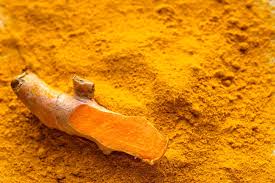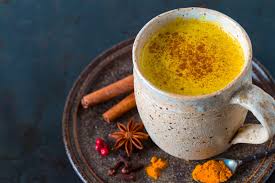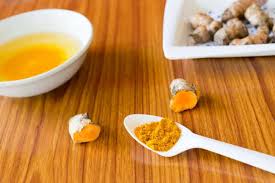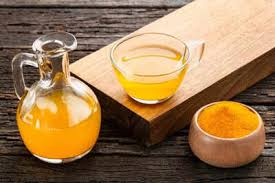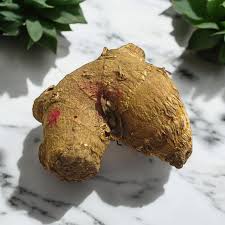How Ayurveda Uses Natural Ingredients for Healing
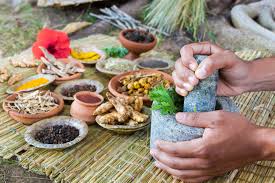
Dirghaanshi explores the transformative power of Ayurveda’s natural ingredients for healing. For thousands of years, Ayurveda has harnessed the potency of nature’s offerings to restore balance and health in the body and mind. Through the use of herbs, oils, minerals, and natural compounds, Ayurveda provides holistic solutions for a variety of health concerns, promoting long-term wellness without reliance on synthetic chemicals. Discover how Ayurveda uses natural ingredients to restore health, treat ailments, and enhance overall well-being.
Ayurveda, the ancient science of life, is centered around the belief that true healing comes from natural sources. By using herbs, spices, minerals, and other natural ingredients, Ayurveda supports the body's innate ability to heal and maintain balance. These ingredients are carefully chosen for their therapeutic properties, working in harmony to treat a wide range of health issues—from chronic illnesses to mental health challenges.
Key Natural Ingredients in Ayurveda and Their Healing Benefits:
Herbs for Healing: Ayurveda relies heavily on medicinal herbs known for their healing properties. Herbs like Tulsi (Holy Basil), Ashwagandha, Neem, and Amla are staples in Ayurvedic healing. These herbs are used to strengthen the immune system, fight infections, reduce stress, and enhance vitality.
Turmeric (Curcuma longa): Known as "the golden spice," turmeric is one of the most powerful natural ingredients used in Ayurveda for its anti-inflammatory, antioxidant, and healing properties. It supports digestion, improves skin health, and promotes overall detoxification. Ayurvedic remedies often include turmeric for treating joint pain, skin conditions, and digestive issues.
Aloe Vera: Aloe Vera is used in Ayurveda for its cooling and soothing properties, making it ideal for treating skin conditions, burns, and internal inflammation. It helps hydrate the body, support digestion, and heal wounds. Its versatility makes it an essential ingredient in Ayurvedic treatments.
Ashwagandha (Withania somnifera): Known for its adaptogenic properties, Ashwagandha is used to balance the body’s response to stress, improve energy levels, and support mental clarity. This herb is often recommended to promote relaxation, reduce anxiety, and improve sleep quality.
Ghee (Clarified Butter): In Ayurveda, ghee is considered a sacred and healing food that nourishes the body and supports digestion. Rich in essential fatty acids, ghee is used to lubricate the joints, enhance cognitive function, and improve skin health. It is also believed to balance the doshas and help with detoxification.
Honey: Ayurveda values honey as both a food and medicine. It is used for its antimicrobial, anti-inflammatory, and soothing properties. Honey is often incorporated into Ayurvedic remedies to treat coughs, sore throats, and digestive issues.
Chyawanprash: A traditional Ayurvedic tonic, Chyawanprash is a blend of herbs, fruits, and honey designed to rejuvenate the body, improve immunity, and promote longevity. It is often recommended for boosting energy, improving digestion, and enhancing overall vitality.
Essential Oils: Ayurvedic healing often incorporates essential oils such as Sandalwood, Rose, and Lavender. These oils are used for their calming, anti-inflammatory, and mood-enhancing properties. They are commonly used in Ayurvedic massage therapies and skincare routines to soothe the body and mind.
Minerals and Bhasmas: In addition to herbs, Ayurveda also uses mineral compounds known as bhasmas, which are prepared through intricate processes to enhance their medicinal properties. These minerals are used to treat conditions such as arthritis, respiratory issues, and skin problems.
How Ayurveda Combines Natural Ingredients for Holistic Healing:
Personalized Treatments: Ayurveda treats every individual as unique, considering their dosha, lifestyle, and health conditions. Natural ingredients are chosen based on the person’s specific needs, creating personalized healing regimens for each individual.
Diet and Lifestyle Integration: Ayurveda does not focus solely on external treatments. It integrates the use of natural ingredients with diet, lifestyle, and mental health practices to achieve a holistic balance. Consuming Ayurvedic foods, herbs, and following daily rituals (Dinacharya) are all part of the healing process.
Prevention and Maintenance: Ayurveda emphasizes preventative care through regular use of natural ingredients that keep the body balanced. This can include using herbal supplements, drinking detoxifying teas, and incorporating healing spices into the diet.
Detoxification and Cleansing: Ayurveda uses natural ingredients to help the body detoxify and eliminate harmful toxins. Techniques like Panchakarma help the body expel impurities, promoting healing and rejuvenation. Natural ingredients play a key role in supporting this cleansing process.
Mental and Emotional Healing: Ayurvedic healing is not just about physical health. Ingredients like Brahmi, Saffron, and Holy Basil are used to support mental health by reducing stress, anxiety, and promoting a sense of well-being.
Why Ayurveda’s Natural Ingredients Matter:
- Effective and Safe: Ayurvedic natural ingredients have been used for thousands of years and are known for their efficacy without harmful side effects.
- Holistic Approach: Ayurveda focuses on treating the root cause of health issues rather than merely addressing symptoms, providing lasting healing.
- Sustainable and Eco-Friendly: Ayurveda uses ingredients that are sustainably sourced and often grown organically, making it an environmentally friendly approach to healing.
Ayurveda offers a comprehensive system of healing that is grounded in nature, providing natural, safe, and effective solutions to various health challenges. Through the use of herbs, oils, and natural compounds, Ayurveda helps you achieve optimal health and wellness by nurturing the body and mind.


















